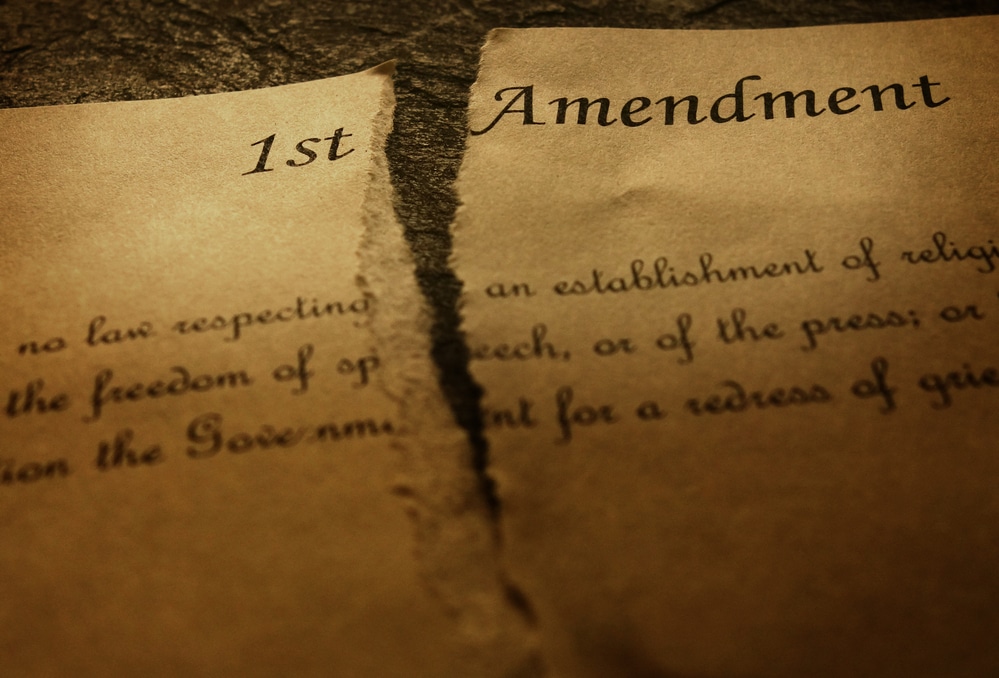The Supreme Court just ruled in the case of Murthy v. Missouri, in which plaintiffs (including Jay Bhattacharya, who wrote the foreword to my Diary of a Psychosis) argued that the federal government unconstitutionally outsourced restrictions on speech to third parties, namely Twitter and Facebook, and prevented dissenting views on Covid from receiving a fair hearing.
The Court ruled that the plaintiffs lacked “standing” to sue, so the merits of the case took a back seat.
Jenin Younes, an attorney who has argued her share of COVID cases and has appeared on the Tom Woods Show, offered her initial thoughts:
As many have likely seen, the Supreme Court found that plaintiffs in Murthy v Missouri lack standing, reversing the Fifth Circuit, with Alito, Thomas and Gorsuch dissenting. While disappointing, the decision is not devastating. It is premised on the fact that a preliminary injunction isn’t warranted because plaintiffs can’t show likelihood of future harm. The majority specifically said they weren’t expressing a view as to whether the Fifth Circuit correctly articulated the standard for when private conduct [e.g., suppression of speech at government behest] is turned into state action.
Thus, the underlying case WILL continue. Alito’s dissent is excellent, showing far more familiarity with the record and explaining that the majority opinion will permit an unlawful censorship campaign to operate so long as it’s carried out with enough sophistication.
This fight is not over!!
Jay himself seems less hopeful:
The Supreme Court just ruled in the Murthy v. Missouri case that the Biden Administration can coerce social media companies to censor and shadowban people and posts it doesn’t like. Congress will now need to act to enforce the Constitution since the Supreme Court won’t.
This now also becomes a key issue in the upcoming election. Where do the presidential candidates stand on social media censorship? We know where Biden stands since his lawyers argue that he has near monarchical power over social media speech.
The court ruled that the plaintiffs (Missouri and Louisiana, as well as me and other blacklisted individuals) lacked standing to sue. This means that the Administration can censor ideas & no person will have standing to enforce the 1st Amendment. Free speech in America, for the moment, is dead.
And since it was petty bureaucrats doing the censoring at the behest of elected officals, voters should ask every candidate for office down to dog catcher where they stand on the power of government to censor. Let’s make it a political liability to favor censorship.
Friends familiar with the court proceedings told me the plaintiffs’ case was poorly argued—an inexcusable failing, given the strength and importance of the case.
Meanwhile, Justice Alito’s dissent raised the kinds of argument that we should have seen in the Court’s decision:
This evidence was more than sufficient to establish [plaintiff Jill] Hines’s standing to sue, see Lujan v. Defenders of Wildlife, 504 U.S. 555, 561–562 (1992), and consequently, we are obligated to tackle the free speech issue that the case presents. The Court, however, shirks that duty and thus permits the successful campaign of coercion in this case to stand as an attractive model for future officials who want to control what the people say, hear, and think.
That is regrettable. What the officials did in this case was more subtle than the ham-handed censorship found to be unconstitutional in Vullo, but it was no less coercive. And because of the perpetrators’ high positions, it was even more dangerous. It was blatantly unconstitutional, and the country may come to regret the Court’s failure to say so. Officials who read today’s decision together with Vullo will get the message. If a coercive campaign is carried out with enough sophistication, it may get by. That is not a message this Court should send.
Congress can fix this if it wants to. That’s a slightly large if.
I’m curious to see what Elon Musk says about it. Refrain from emailing me about what a terrible person he is, etc. Not the point. I’m curious to see his response.
I can tell you that on social media today you can see people saying things like, “The government has an interest in preventing the spread of misinformation during a deadly pandemic.”
If you’re like me, that kind of language makes your skin crawl.
So we cannot let up in insisting that by far the greatest spreader of “misinformation” was the federal government itself. And that’s the purpose of Diary of a Psychosis, my book on all this.
Remember that it’s my voice reading the audiobook version, and that means you can expect just that balance of sarcasm and contempt that you seek on this subject.
This article was originally featured as a Tom Woods newsletter and is republished with permission.
































